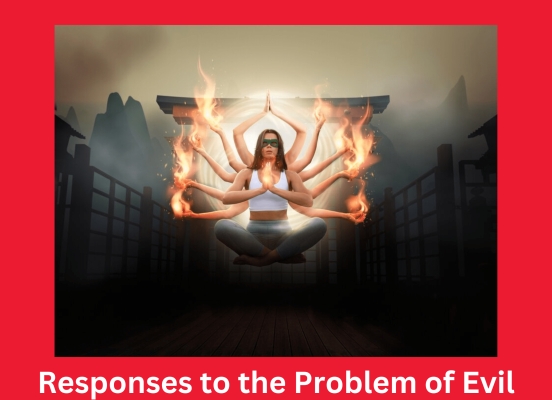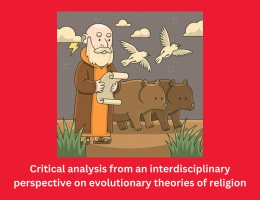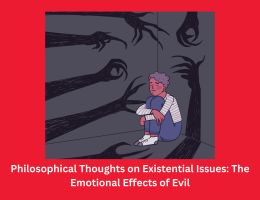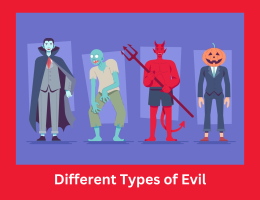
Responses to the Problem of Evil
- By admin --
- Friday, 08 Mar, 2024
In response to the concern of evil, there are vast overlays of theological and philosophical positions, which attempt to address one of the great enduring limitations of metaphysical belief: evil and suffering and consciousness namely that love is the omnipotence. A kind of factors, defenses, and justifications were superior within the direction of records by way of the use of theologians, philosophers, and one of a kind intellectuals with a view to resolve the seemingly incompatible nature of evil and the traits that are generally associated with God.
Theodicy is a famous subset of solutions to the Problem of Evil. The word "theodicy" refers to tries to offer an reason behind why a loving and all-powerful God may want to allow evil and struggling to exist inside the universe. It comes from the Greek phrases "theos" (God) and "dike" (justice). Theodicies deliver an reason for how evil can stay with divine kindness that allows you to bring the reality of evil and the notion in a loving and simply God into concord.
A famous theodicy in Western philosophy and theology is the "Free Will Defense." According to this justification, ethical employer and the capability to select out amongst specific and evil are contingent upon human loose will. This angle holds that God respects human autonomy and freedom and lets in people to make morally essential choices, in spite of the reality that such choices boom the possibility of evil and struggling. God respects human autonomy and dignity with the useful resource of giving human beings unfastened will, which enables to give an cause of why ethical evil exists within the worldwide.
The "Soul-Making Theodicy," every other famous theodicy, contends that hardship and misfortune are crucial to someone's moral and non secular increase. In this attitude, virtue formation, compassion and empathy cultivation, and religious perception development can end result from going through and conquering limitations, pain, and adversities. Suffering consequently lets in the improvement and maturation of the human soul and advances the moral and non secular development of every humans and societies.
Furthermore, the "Greater Good Defense" postulates that God permits evil and struggling in the world due to the fact they may be crucial to the accomplishment of better capabilities or goods that would now not be possible otherwise. This attitude holds that God permits evil which will accomplish better-order values like bravery, resiliency, compassion, and the risk for human beings to show ethical perfection in the midst of difficulty. This is how evil's contribution to the overall equilibrium of pinnacle in the international justifies its existence.
Defenses are each other form of solution to the Problem of Evil, further to theodicies. Defenses strive to expose that the lifestyles of evil is logically consistent with the existence of God, despite the fact that we might not completely recognize the motives for its existence. This is in assessment to theodicies, which are trying to find to give an reason behind or justify the lifestyles of evil.
A common defense is the "Limited Human Perspective Defense," which highlights how human know-how and comprehension are insufficient for completely appreciating the intents and desires of a divine character. This attitude believes that because of reality, humans are imperfect, deformed animals with suppressed cognitive abilities, and so it is remotely possible that they cannot fully comprehend God’s complex design. According to the prevailing thinking, the life of the wicked may once again be pleasant for people, but it is not incompatible with an all-powerful and loving God.
There is another argument which is referred to as "epistemic modesty defense" and argues in favour of significance of being modest and intellectual so as to prevent harm to others. It asserts that we must know our own boundaries properly and it enables people to avoid silly and unreasonable beliefs. From this attitude, the lifestyles of evil can act as a reminder of the intrinsic boundaries of human know-how and the need of exercising humility at the same time as confronting the mysteries of lifestyles.
In addition, proponents of theism have superior the "Inscrutable Purposes Defense," which postulates that God may have reasons beyond our capacity to apprehend for allowing evil. This angle holds that because God's reasons and dreams could be enigmatic or unknown to us, we should not draw organization conclusions approximately how evil and God's existence can coexist. According to this point of view, the life of evil may be considered as a test of religion, necessitating that Christians agree with in God's benevolence and understanding regardless of what seems to be evil within the world.
To sum up, there are many exceptional theological and philosophical techniques to the Problem of Evil, all of which try and cope with certainly one of the most important barriers to religious belief. Theodicies give an explanation for how evil and divine kindness can coexist and try to give an explanation for why an awesome God would allow evil to exist. Contrarily, defenses searching for to demonstrate that, in spite of our incomplete comprehension of the causes of evil, it's miles logically steady with God's lifestyles. Collectively, these solutions show how people are still trying to understand the mysterious and complex trouble of evil inside the global.





